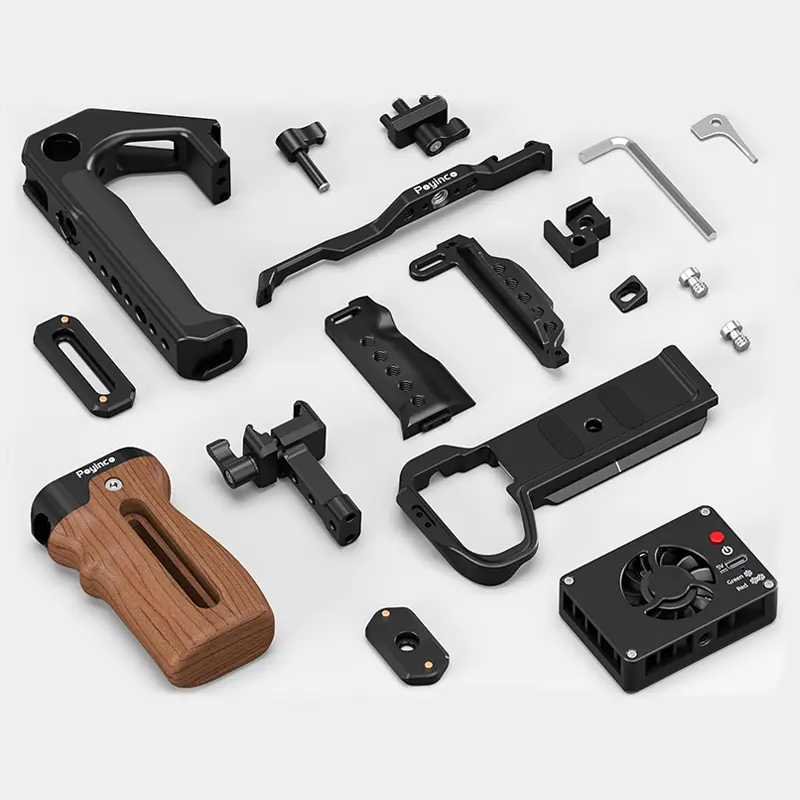

Time:2025-05-30 Views:1

CNC (Computer Numerical Control) machining has revolutionized the production of food machinery components, offering high precision, consistency, and efficiency that are essential for the food industry. Food machinery must meet strict hygiene, safety, and quality standards, and CNC machining plays a crucial role in ensuring that components are manufactured to these exacting requirements.
When it comes to material selection, food - grade stainless steel is a popular choice for food machinery components due to its corrosion resistance, durability, and ease of cleaning. CNC machines can precisely cut, mill, drill, and turn stainless steel materials to create complex shapes and accurate dimensions. For example, components such as mixing blades, conveyor belts, and food processing chambers need to have smooth surfaces to prevent food residue buildup and bacterial growth. CNC machining allows for the creation of surfaces with extremely fine finishes, often measured in micrometers, ensuring that these components meet the stringent hygiene standards of the food industry.
The precision of CNC machining is particularly important in the production of food machinery parts that interact with each other. Gears, shafts, and couplings need to fit together perfectly to ensure smooth operation and avoid any potential damage to the machinery or contamination of the food products. CNC machines can achieve tight tolerances, sometimes as small as a few thousandths of a millimeter, guaranteeing that all components are interchangeable and function seamlessly within the food machinery system.
Another advantage of CNC machining in food machinery component production is its ability to handle complex geometries. Many food processing operations require specialized components with intricate shapes, such as molds for forming food products or nozzles for precise dispensing. CNC programming enables the creation of these complex designs with ease. Using computer - aided design (CAD) software, engineers can create 3D models of the components, which are then translated into CNC machine instructions. This digital workflow ensures that the final components match the design specifications accurately, reducing the need for manual adjustments and minimizing errors.
In addition, CNC machining offers high production efficiency. Once the machining program is set up, the CNC machine can operate continuously, producing multiple components with consistent quality. This is especially beneficial for large - scale food machinery manufacturers, as it allows for faster production cycles and lower production costs. Overall, CNC machining has become an indispensable technology in the production of food machinery components, enabling the creation of high - quality, hygienic, and reliable equipment that is essential for the modern food industry.
Read recommendations:
motorcycle camera mount Supply chain
motorcycle camera mount kit wholesale